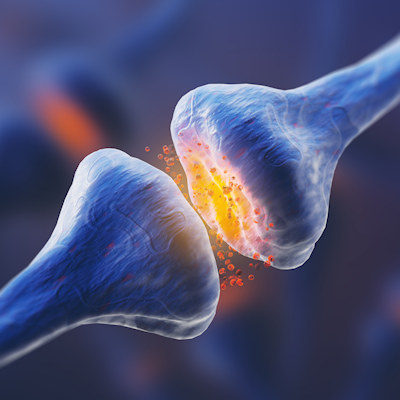October 26, 2022 -- Scientists at the University of Colorado Anschutz Medical Campus have discovered the overexpression of a gene tied to cell division and the structure and function of neurons may prevent and protect against cognitive decline in both mice and humans with Alzheimer’s disease (AD).
In their study, published November 18 in the journal iScience, the researchers describe how overexpressing the gene Kinesin-5 -- or KIF11 -- in mice with AD led to improved performance on cognitive tests compared to AD mice with normal levels of KIF11.
The main component of Alzheimer's plaques -- amyloid beta (Abeta) -- can inhibit KIF11, a motor protein that plays a critical role in the formation of the dendrites and dendritic spines of neurons used to communicate with other neurons and are important for learning and memory.
However, researchers reported in their study that KIF11 overexpression rescued Abeta-mediated "decreases in dendritic spine density in cultured neurons and in long-term potentiation in hippocampal slices."
Co-senior author Huntington Potter, PhD, professor of neurology and director of the University of Colorado Alzheimer's and Cognition Center, said in a statement that overexpressing KIF11 in mice did not affect the amyloid levels in the brain and "yet they were still cognitively normal despite the plaques," adding that "this is one of the best indications that you can maintain cognition without getting rid of the plaques."
Researchers also analyzed genetic data from human AD patients to determine if naturally occurring variations in KIF11 levels correlated with better cognitive performance in adults with or without amyloid plaques.
"Our results from analyzing the human data indicate that higher levels of KIF11 correlate with better cognitive performance in a cohort of older adults with amyloid pathology," said lead author Esteban Lucero, PhD, from the University of Colorado School of Medicine. "Thus, our results suggest that higher KIF11 expression levels may partially prevent cognitive loss during the course of AD in humans, which aligns with our findings regarding the role of KIF11 in animal models of AD."
The authors hope their study will open the door for researchers to start testing new or existing drugs that can safely create this effect in humans. They note that many current experimental treatments for AD have focused on reducing Abeta production or on increasing the clearance of plaques and that most of these approaches have failed to prevent or reverse cognitive decline in clinical trials.
"Clearly, alternative approaches to the development of AD therapeutics are needed," said co-senior author Heidi Chial, PhD, assistant professor of neurology and director of grant strategy and development at the University of Colorado Alzheimer's and Cognition Center.
Copyright © 2022 scienceboard.net








